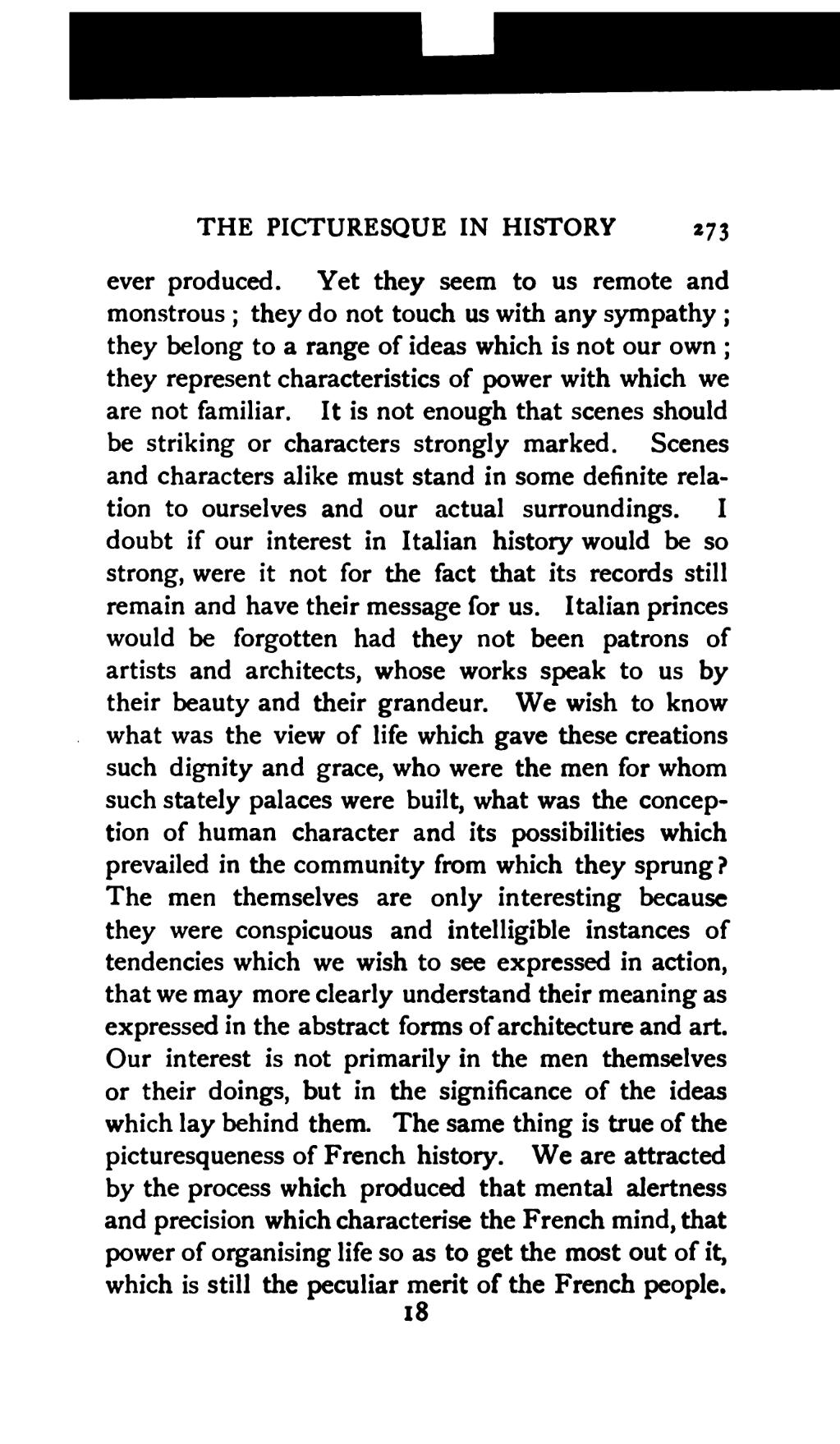ever produced. Yet they seem to us remote and monstrous; they do not touch us with any sympathy; they belong to a range of ideas which is not our own; they represent characteristics of power with which we are not familiar. It is not enough that scenes should be striking or characters strongly marked. Scenes and characters alike must stand in some definite relation to ourselves and our actual surroundings. I doubt if our interest in Italian history would be so strong, were it not for the fact that its records still remain and have their message for us. Italian princes would be forgotten had they not been patrons of artists and architects, whose works speak to us by their beauty and their grandeur. We wish to know what was the view of life which gave these creations such dignity and grace, who were the men for whom such stately palaces were built, what was the conception of human character and its possibilities which prevailed in the community from which they sprung? The men themselves are only interesting because they were conspicuous and intelligible instances of tendencies which we wish to see expressed in action, that we may more clearly understand their meaning as expressed in the abstract forms of architecture and art. Our interest is not primarily in the men themselves or their doings, but in the significance of the ideas which lay behind them. The same thing is true of the picturesqueness of French history. We are attracted by the process which produced that mental alertness and precision which characterise the French mind, that power of organising life so as to get the most out of it, which is still the peculiar merit of the French people.
